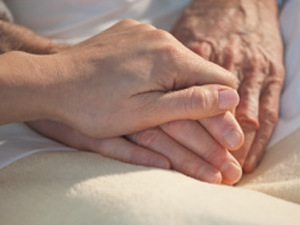The Commission on Assisted Dying published its report yesterday. It has concluded that it is possible to devise a legal framework that would set out strictly defined circumstances in which terminally ill people could be assisted to die. The work was funded by Sir Terry Pratchett and Bernard Lewis, both advocates of assisted dying.
I joined the Commission against the advice of fellow clerics. I had an undecided mind, but was sympathetic to the values of freedom of choice, and supportive of a progressive and humane society. Many of the commissioners had already declared their sympathy with the need for a change in the law. We were all clear, however, about the necessity to strive for independence (of government and other campaigning groups) and to use our expertise to produce a fair report, firmly rooted in the evidence.
The recommendations are more conservative than many have predicted. The conditions whereby an individual might be assisted in ending his or her life are tightly defined. We have spent 12 months sifting through 1200 responses from practitioners, professionals, and members of the public. There is new research that bears on the argument that the present law is unsatisfactory. It has been a privilege to travel alongside my fellow commissioners, but we have not ended up in the same place. In the end, mine was the single dissenting voice from the conclusions. My fellow commissioners have accommodated my divergence with generosity. I support the coherence, rigour, and quality of this work, and hope that it will be read and used as a basis for further research, work, and public debate.
Here are my reasons for affirming the report, but in the end not being able to support the conclusions.
Fundamentally, we cannot demand the freedom to choose at any cost. I understand that there are significant difficulties with the current law. Yet my visit to Switzerland with the Commission to learn something of the law and practice there raised many more questions about the way in which a culture views life, death, and the freedom to choose. It left me feeling that, however complex this area of human life is, it cannot be dealt with through the law or medicine alone. We need a broader and wiser reflection on our experiences of death and dying.
To assist this, the Churches need to support a wider cultural engagement with our relationship to death. All of us swim in the one sea of our lives, trying to stay afloat as best we can, clinging to such preservers as we might draw about us: reason, science, faith, art, and so on. But, in the end, we all sink; we all die. I doubt whether many of us have really come to terms with our mortality. The map of dying and death remains foreign, an unnegotiable land. We should all attempt to humble ourselves before this reality. The work of this Commission has further convinced me of the necessity of the need to change the map of life and death — to enable people and systems to ensure that everyone is given the opportunity to live well and die well in the place and manner of his or her choosing.
Christians can contribute by sharing their theological wisdom. They have answers to questions about suffering, personhood, and the value of the vulnerable that could inform a more open conversation about death in Britain today. Also, I have a particular concern for the nurture of values that seek to increase choice, reduce inequality (especially for women and older people), and, by better planning, intervention, and care, to enable us all to travel safely through this fearful land. I am disturbed by the inadequacy of UK health and social care, where dignity and compassion are universally affirmed, but often not part of the day-to-day practice of those who are tasked to care. What is necessary here is a spiritual task: that of nurturing imagination and compassion. Can health professionals and structures demonstrate an imagination of the sheer fragility and preciousness of life in the face of death? This has political implications for the use of resources, investment in staff training and support, and our desire to organise systems — with the constant reminder that it is the patients who pay our wages.
Furthermore, more ethical reflection needs to take place. Much has been made of the religious (and at times unhelpfully abstract) principle of “the sanctity of life”. This needs to informed by an affirmation of life in all its manifestations. My theological conviction is that there is no stage of human life, and no level of experience, which is intrinsically incapable of being lived through in some kind of trust and hope. More than 25 years of pastoral work has shown me that even experiences of pain and helplessness can be passed through in a way that is meaningful and communicates dignity and assurance.
We NEED a spiritual framework and signposts that will assist us in talking about the sheer wonder and diversity of human beings and their experience seriously — an approach to life and death that notices just who we are. I suspect that the coming days will be characterised by careless comment and dismissive rhetoric about the report, not least by people of faith. The Church needs to ask itself how it might contribute to the process of discussion, engagement, and listening which has characterised the Commission’s work.


I think that assisted dying in some circumstances is the best way of bringing a pain ridden human life gently to a close. Why do we have to watch someone we love struggle to breathe, for hours, sometimes for days. Crying out in pain when moved because we think we are making them more comfortable by moving them.
Giving them water because of dehydration, making the situation worse because the liquid goes down the wrong way and coughing is so difficult.